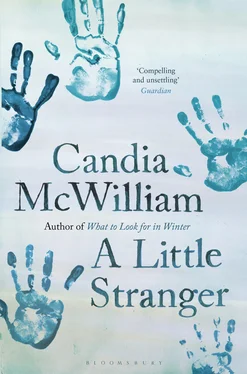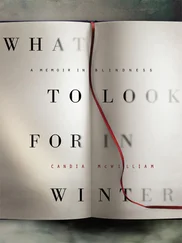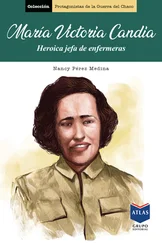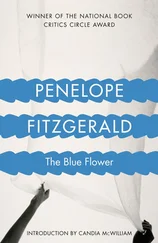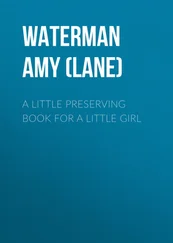Candia McWilliam - A Little Stranger
Здесь есть возможность читать онлайн «Candia McWilliam - A Little Stranger» весь текст электронной книги совершенно бесплатно (целиком полную версию без сокращений). В некоторых случаях можно слушать аудио, скачать через торрент в формате fb2 и присутствует краткое содержание. Год выпуска: 2011, Издательство: Bloomsbury UK, Жанр: Современная проза, на английском языке. Описание произведения, (предисловие) а так же отзывы посетителей доступны на портале библиотеки ЛибКат.
- Название:A Little Stranger
- Автор:
- Издательство:Bloomsbury UK
- Жанр:
- Год:2011
- ISBN:нет данных
- Рейтинг книги:3 / 5. Голосов: 1
-
Избранное:Добавить в избранное
- Отзывы:
-
Ваша оценка:
- 60
- 1
- 2
- 3
- 4
- 5
A Little Stranger: краткое содержание, описание и аннотация
Предлагаем к чтению аннотацию, описание, краткое содержание или предисловие (зависит от того, что написал сам автор книги «A Little Stranger»). Если вы не нашли необходимую информацию о книге — напишите в комментариях, мы постараемся отыскать её.
A Little Stranger — читать онлайн бесплатно полную книгу (весь текст) целиком
Ниже представлен текст книги, разбитый по страницам. Система сохранения места последней прочитанной страницы, позволяет с удобством читать онлайн бесплатно книгу «A Little Stranger», без необходимости каждый раз заново искать на чём Вы остановились. Поставьте закладку, и сможете в любой момент перейти на страницу, на которой закончили чтение.
Интервал:
Закладка:
I spoke of the hingelessness I wanted for my son, a life seamless and uninterruptible. But I was wrong. It is for those people I now fear the most, for, when the blow comes, they are unhinged. It is better to have a little grit, a slight abrading. That is what life actually brings, if not worse. The perfect oval smoothness encloses the lives only of the very stupid or the very ill. We give it to our tiny babies until they are accustomed to a little rocking.
Until that time we shelter them against even the slightest swell. Margaret had swallowed the bait whole; she believed in the calm green sea of money. It rocked her, having sung her its songs (Ecce Homo, Patience Rewarded , and the countless other siren tunes), and then it wrecked her. Unresourceful, pusillanimous, bled of initiative by the long cold wait for the handsome prince, she had neither wish nor wit to build herself a shelter of the wreckage.
I was all but wrecked too, for I was beginning to roll with that beguiling ocean, and it would have pulled me down as surely as it buoyed me up.
John and the baby at least made landfall.
Chapter 27
Have you ever seen books burnt? The idea is vile; the fact is worse. There is no excuse for it but a new Ice Age. The only excuse for pyres of books is a killing need for warmth.
The wreck made of our lives, whose chapters were so ordered, whose bindings so handsome, title and verso so clean and clear, was made by such a need in Margaret.
Yet in my infatuation, turning the pages, engrossed in plot, enamoured of surface, I could not read what I had eyes to see.
Burnt books leave scum, not light ash. The gum of cows’ feet, the sea-bed minerals, are leached out. Only the twenty-six frail characters are destroyed.
The doctor relied on my seeing what my eyes told me. Never rely on intelligent people to be so. My eyes told me nothing; my nose, which should have told me something, did not.
I said I was vain, but I had not looked in any mirror I could avoid for seven months. I veiled them as though for a death. I turned from them as though I drank blood. In Sweetings I did see myself. Not, as I said, invisible, but not wishing to be seen. And impossible not to see. What could the other men have said to a man with a wife the size of a whale? For every pound Margaret lost, I put on two. In two years, the doctor says, I shall be myself and not these three selves in the one skin.
That weekend when Margaret and John Solomon were in London was a lost weekend, though you will see its scars on my green marble legs and leg-o’-mutton arms. Leonora must have sensed I was about to do wrong. What we did together, I and my conscript accessory to the fat, was attend a children’s party lasting twenty-fours hours, a party for ourselves alone. Seven loaves with chocolate hail, white milk bread paved with butter and the pastel sugared aniseed the Dutch call little mice, mob caps of jelly and lakes of cream, egg sandwiches for a team of hungers, and shoals of herring, pink, silver, white, grey, and the morbid maroon which is so delicious eaten with warm yellow potatoes and cold soured cream off a hot spoon.
A feast for Dutch children, you see it was. After that, a dyke of chocolate, smooth Droste pebbles, disks as brown as sea coal, or creamy like the best Friesians between their mappy black. We ate truffles rolled in pulverised Verkade until they were as smooth as mushroom caps. I held off the sea with our solid wall of eating, but its fingers broached our dyke.
Having been made to feel so small, I chose to make myself large.
Chapter 28
The only full description of a work of eating I have served you so far was when I described to you the blue and white bowls of nuts, laid out after supper. Enough to keep. . What is it nannies say? Enough to starve the feeding millions. .
And that was after eating supper. Soon after Margaret came into our house, I began my secret eating. It was not easy to keep secret, but no one cared to mention it, and for a time I carried it well, like a Polynesian cannibal queen. Then again, it might have been the bulk of the new life, and no one likes to tempt fate by criticising the unborn.
Our house, that long full term of pregnancy, contained two countervalent madänesses, both to do with food.
I did not know, until the conflagration at the very end, of her miserable bringings up.
My hogging began in joy. I was a pig in muck. Not two, not four, but ten of everything. I moved with the times; I was a decimal eater. I believed in eating only the best and I made it beautiful. I contemplated its beauty before commencing engorgement. The virtue of the food, its rarity and cost, the secrecy of its preparation, the hidden expeditions mounted for it, gave my votive sessions the nocturnal glamour of a love affair. By day I cut normal sections from the pies in the larder. By night no moon of cheese could satisfy me.
Even when the fat began to heat and chafe, to require powdering between its rolls after any exertion, I felt innocent. The more innocent, if it were possible, the more I ate. The pleasure was so rich and so simple, so harmless, so uncomplicated. Anorectics are said to fear adolescence. My glowing feasts were celebrations of being a child. I lifted from myself the weight of thought as I donned that precious fat.
The exquisite night-time sense of ceasing to be homesick for some quite fabricated home, some honeymoon of childhood, of engaging with something real and purely unreciprocal, made my eating times almost holy to me. It still seems strange that all that glory turned not to light and radiance but to heavy dullness and the shifty sexlessness of fat.
At its height, the midnight feasting was Dutch, wanting only an urn of tulips to freeze it to still life. I arranged cold fowl (which I ate, wrenching like a midwife with my hands) and sausages with flecks of white fat. On pewter dishes I dumped clouds of bread and flitches of striped speck. Transparent red smoked beef hung over plates, silky as poppy petals. I tumbled grapes from blue to yellow and the weak purple of primulas. I cushioned myself with Bries rich as white velvet. All this in trencherly quantities.
It was so beautiful; how could it do harm?
At the same time, Margaret was carrying out her inverted worship of the same god.
Chapter 29
I should have smelt her illness. I saw only fertility, imagined only the healthy malaise of pregnancy, when the doctor tried to hint at what was wrong. She was not as ill as she had been, twice before, but each time it grew harder for her body to bear the lightness she laid upon it. To me, she looked simply rather enviably slim, because I knew I was unenviably fat. Yet by now she was weighting her hems with shot and padding her frocks with dressings; dressing up, you might call it.
I should have thought about her poor hirsute limbs, observed not only the gestures but their reasons. Thick spittle is caused by potent tranquillisers. They clog you up and wring you claggy.
Bet and Edie had been seeking the source of a bad smell, fearing rats. That was why they went to her room. But it was more than rats, which are to be expected in any house among fields and farm buildings.
In the end they did trace the smell. It came from one of Margaret’s suitcases. It left with her, never having been opened. Bulimia is frequently the resort of very tidy people. She couldn’t stand the mess inside, perhaps, all that disorderly digestion. She kept surgical gloves in the nursery bathroom, so she didn’t get dirty hands as she put a long feather down her raw throat. She dusted the gloves with talc before entering them, John said. He was familiar with the routine, considering it part of the grown-up woman’s toilette. He told me this after we’d all come back from hospital, and I asked him to powder the baby. ‘Why?’ he asked. ‘Is she getting ready to do icky-poo?’ The expression wasn’t his own. After she had gone, I found the most silver and babyish of John’s curls in a very small envelope, at the back of one of her drawers. In a way, she was a witch, though her poor spells did not snare the handsome prince. I wondered if the fiancé too was a fairy story, the reliable foil of fiction, in sharp contrast to the flashing attractions of Mr Right.
Читать дальшеИнтервал:
Закладка:
Похожие книги на «A Little Stranger»
Представляем Вашему вниманию похожие книги на «A Little Stranger» списком для выбора. Мы отобрали схожую по названию и смыслу литературу в надежде предоставить читателям больше вариантов отыскать новые, интересные, ещё непрочитанные произведения.
Обсуждение, отзывы о книге «A Little Stranger» и просто собственные мнения читателей. Оставьте ваши комментарии, напишите, что Вы думаете о произведении, его смысле или главных героях. Укажите что конкретно понравилось, а что нет, и почему Вы так считаете.
